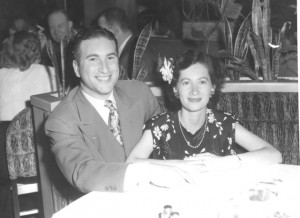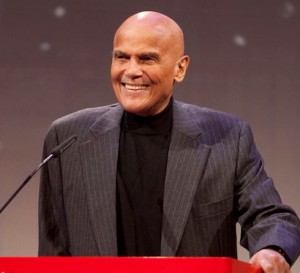Evening Update: In the most disturbing eyewitness report yet, a Mitt Romney classmate involved in the assault on John Lauber has told ABC,
“’It’s a haunting memory. I think it was for everybody that spoke up about it. . .because when you see somebody who is simply different taken down that way and is terrified and you see that look in their eye you never forget it. And that was what we all walked away with,’ said Phillip Maxwell, who is now an attorney and still considers Romney an old friend. ‘I saw it with my own eyes,’ said Maxwell, of the anecdote first reported by the Washington Post. Maxwell said Romney held the scissors helping to cut the hair of a student, John Lauber, who was presumed to be gay and who had long hair. ‘It was a hack job. . . clumps of hair taken off.’ Asked if he has any doubt that what Romney did could be considered bullying, Maxwell responded, ‘Oh my god, are you kidding?. . . I castigated myself regularly for not having intervened. I would have felt a lot better about myself had I said ‘hey, enough.’ When I saw the look on his [Lauber’s] face, it was a look I’ll never forget,” said Maxwell. ‘When you see a victim, the sense of trust betrayed in this boy who was perfectly innocent for being different. This was bullying supreme,’ he said.”
—
Afternoon Update: This situation has gotten murkier all day, with Romney’s spokesperson (in my initial post below) denying that the candidate had any recollection of such an incident, then Romney himself later saying he didn’t at the time think of the classmate as gay, but implying that he did indeed know and remember him. He continues to say he doesn’t recall this incident, though he adds he won’t “argue” with the report of it. And while the Romney campaign is reportedly trying to arrange for former classmates of his to vouch for him, the only one contacted so far is still deciding whether or not he’s going to speak on behalf of Mitt’s campaign. Then there is one former classmate, quoted here via ABC who the campaign will probably not be asking for a character reference:
“One former classmate and old friend of Romney’s–who refused to be identified by name–said there are ‘a lot of guys’ who went to Cranbrook who have ‘really negative memories’ of Romney’s behavior in the dorms, behavior this classmate describes as ‘evil’ and ‘like Lord of the Flies.’ The classmate believes Romney is lying when he claims to not remember [the hair-cutting incident]. ‘It makes these fellows [who have owned up to it] very remorseful. For [Romney] not to remember it? It doesn’t ring true. How could the fellow with the scissors forget it?’ the former classmate said.”
—

“Mitt Romney returned from a three-week spring break in 1965 to resume his studies as a high school senior at the prestigious Cranbrook School. Back on the handsome campus, studded with Tudor brick buildings and manicured fields, he spotted something he thought did not belong at a school where the boys wore ties and carried briefcases. John Lauber, a soft-spoken new student one year behind Romney, was perpetually teased for his nonconformity and presumed homosexuality. Now he was walking around the all-boys school with bleached-blond hair that draped over one eye, and Romney wasn’t having it.
‘He can’t look like that. That’s wrong. Just look at him!’ an incensed Romney told Matthew Friedemann, his close friend in the Stevens Hall dorm, according to Friedemann’s recollection. Mitt, the teenaged son of Michigan Gov. George Romney, kept complaining about Lauber’s look, Friedemann recalled. A few days later, Friedemann entered Stevens Hall off the school’s collegiate quad to find Romney marching out of his own room ahead of a prep school posse shouting about their plan to cut Lauber’s hair. Friedemann followed them to a nearby room where they came upon Lauber, tackled him and pinned him to the ground. As Lauber, his eyes filling with tears, screamed for help, Romney repeatedly clipped his hair with a pair of scissors. The incident was recalled similarly by five students, who gave their accounts independently of one another.”
That is the opening of a lengthy bombshell article by Jason Horowitz in today’s Washington Post about the abusive and appalling treatment he reports Mitt Romney led against classmate John Lauber in 1965. Before going to press Horowitz asked Romney’s campaign for comment:
“His campaign spokeswoman said the former Massachusetts governor has no recollection of the incident. ‘Anyone who knows Mitt Romney knows that he doesn’t have a mean-spirited bone in his body,’ Andrea Saul said in a statement. ‘The stories of fifty years ago seem exaggerated and off base and Governor Romney has no memory of participating in these incidents.’”
The nearly 5500-word article seems to be meticulously sourced and carefully reported, though I’m sure Romney allies and rightwingers will attack the reporter and the Post. Still, with five classmates remembering the incident so vividly, all looking back on it with deep regret, I predict this denial will be assailed until the campaign–or even the candidate himself–is forced to come up with a more believable response. The image of Mitt Romney rallying a veritable ‘lynch mob’ to forcibly pin down their classmate and make him submit to a sadistic and weird kind of de-feminizing of his supposedly effeminate affectation–his hair that swooped over an eye–is sick and disgusting, especially when contrasted with President Obama’s endorsement of marriage equality yesterday.
Apart from the possible political repercussions from this story, it is also very sad. The effects of this incident in Lauber’s life echoed down through the years. While Romney suffered no discipline for his deeds at “the famously strict” Cranbrook, Lauber was expelled prior to graduation, for smoking a cigarette. He died in 2004. I suspect I’ll be updating this post and commenting again on the story as it develops. For now, I urge you to take the time to read the disturbing article.
 Horst Faas, the great photojournalist who covered conflicts in Bangla Desh, the Congo, and most famously Vietnam, died last week at age 79. In the 1960s he was a colleague to David Halberstam and Peter Arnett, among other notable reporters and correspondents. Faas’s longtime Associated Press colleague Richard Pyle has written the AP’s obituary and a personal remembrance of his dear friend and colleague, both of which are posted on the New York Times‘s superb Lens blog. With warmth and affection Pyle calls this period of his life “The Story That Never Ends.” His personal essay includes an account of the final reporting trip the two friends made together, in 1998, searching for the remains of four photographers–Larry Burrows of Life magazine, Kent Potter of United Press International, Keisaburo Shimamoto of Newsweek, and Henri Huet of Associated Press–all of whom were aboard a helicopter over Laos that crashed in 1971. In 2004 as co-authors the two published, Lost in Laos: A True Story of Tragedy, Mystery, and Friendship, their book on this incident and its aftermath. All photos for this post are credited to Horst Faas and/or the AP, gratefully borrowed for reproduction here so my readers can see Faas’s genius and his empathy, before seeing even more of his work via the key links to Pyle’s obituary and his personal remembrance. Click through to full post for all photos / / more . . .
Horst Faas, the great photojournalist who covered conflicts in Bangla Desh, the Congo, and most famously Vietnam, died last week at age 79. In the 1960s he was a colleague to David Halberstam and Peter Arnett, among other notable reporters and correspondents. Faas’s longtime Associated Press colleague Richard Pyle has written the AP’s obituary and a personal remembrance of his dear friend and colleague, both of which are posted on the New York Times‘s superb Lens blog. With warmth and affection Pyle calls this period of his life “The Story That Never Ends.” His personal essay includes an account of the final reporting trip the two friends made together, in 1998, searching for the remains of four photographers–Larry Burrows of Life magazine, Kent Potter of United Press International, Keisaburo Shimamoto of Newsweek, and Henri Huet of Associated Press–all of whom were aboard a helicopter over Laos that crashed in 1971. In 2004 as co-authors the two published, Lost in Laos: A True Story of Tragedy, Mystery, and Friendship, their book on this incident and its aftermath. All photos for this post are credited to Horst Faas and/or the AP, gratefully borrowed for reproduction here so my readers can see Faas’s genius and his empathy, before seeing even more of his work via the key links to Pyle’s obituary and his personal remembrance. Click through to full post for all photos / / more . . . 

 My now sadly gone parents–Earl Turner beaming and his pretty wife Sylvia Shiff Turner, with a gardenia in her hair. They were on a trip in June 1948 from Cleveland, to Niagara Falls and Hamilton, Ontario, in Canada, and to Detroit. The Turners liked Canada even then. Happy Mothers Day!
My now sadly gone parents–Earl Turner beaming and his pretty wife Sylvia Shiff Turner, with a gardenia in her hair. They were on a trip in June 1948 from Cleveland, to Niagara Falls and Hamilton, Ontario, in Canada, and to Detroit. The Turners liked Canada even then. Happy Mothers Day!



